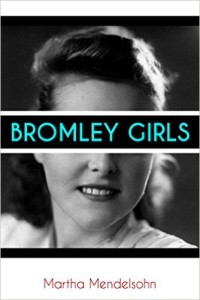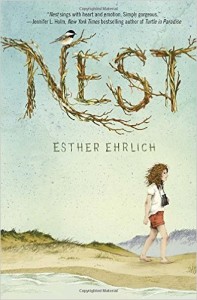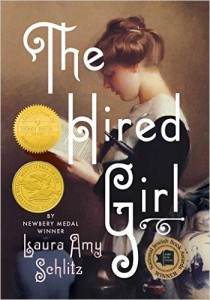
by admin
Feminist Fiction for Young Readers
 Bromley Girls (Texas Tech University Press, $14.95), a first novel by Martha Mendelsohn, is the story of Emily Winter, 14, who in 1955 moves with her assimilated, upwardly mobile Jewish parents from Long Island to a castle-like apartment building on Park Avenue. Vivid details of life in New York City in 1950s abound, including winter coats with velvet collars, poodle skirts, the Best & Co. department store, Horn & Hardart’s Automat, uniformed matrons in movie theaters, and romance magazines for teen girls featuring moralistic tales about going too far with your boyfriend. New at her posh girls school, Emily makes quick friends with Phoebe, since both roll their eyes at the over-the-top grieving of their classmates for Hollywood heartthrob James Dean, dead in a car crash. The two also prefer studying the Middle Ages to their Current Events class (the Cold War) and love the accoutrements of knighthood. Emily refers to her inventor-entrepreneur dad as Lord Sidney and her shopaholic mom as Lady Lenore; the household soon includes an infant brother and a television-loving Holocaust survivor baby-nurse. Emily overhears a clique ringleader plotting to exclude the Jewish girls in their class, and worries about a friend who’s starving herself. In this thoughtful, entertaining and satisfying read, Emily brings her school to confront both social anti-Semitism and its obliviousness to eating disorders.
Bromley Girls (Texas Tech University Press, $14.95), a first novel by Martha Mendelsohn, is the story of Emily Winter, 14, who in 1955 moves with her assimilated, upwardly mobile Jewish parents from Long Island to a castle-like apartment building on Park Avenue. Vivid details of life in New York City in 1950s abound, including winter coats with velvet collars, poodle skirts, the Best & Co. department store, Horn & Hardart’s Automat, uniformed matrons in movie theaters, and romance magazines for teen girls featuring moralistic tales about going too far with your boyfriend. New at her posh girls school, Emily makes quick friends with Phoebe, since both roll their eyes at the over-the-top grieving of their classmates for Hollywood heartthrob James Dean, dead in a car crash. The two also prefer studying the Middle Ages to their Current Events class (the Cold War) and love the accoutrements of knighthood. Emily refers to her inventor-entrepreneur dad as Lord Sidney and her shopaholic mom as Lady Lenore; the household soon includes an infant brother and a television-loving Holocaust survivor baby-nurse. Emily overhears a clique ringleader plotting to exclude the Jewish girls in their class, and worries about a friend who’s starving herself. In this thoughtful, entertaining and satisfying read, Emily brings her school to confront both social anti-Semitism and its obliviousness to eating disorders.
 Nest (Wendy Lamb Books, $16.99) by Esther Ehrlich, also a debut novel; this one, with a younger protagonist, has a leisurely summery feel. It’s set in 1972 Cape Cod, a habitat hospitable to, among other creatures, birds and their admirers. It is narrated by Naomi “Chirp” Orenstein, an 11-year old with a dancer mother who develops a serious illness and a Jewish psychiatrist dad. Chirp is a sharp observer of those around her: two sets of grandparents with distinctly different communication styles, an older sister, and a large, rowdy family of neighbors. This is a bittersweet, lyrical story of parent and child love, tragic loss, the consolations of escape into the natural world, and a redeeming friendship, with a run-away journey by bus taken by a bereaved Chirp and the eccentric boy from across the road.
Nest (Wendy Lamb Books, $16.99) by Esther Ehrlich, also a debut novel; this one, with a younger protagonist, has a leisurely summery feel. It’s set in 1972 Cape Cod, a habitat hospitable to, among other creatures, birds and their admirers. It is narrated by Naomi “Chirp” Orenstein, an 11-year old with a dancer mother who develops a serious illness and a Jewish psychiatrist dad. Chirp is a sharp observer of those around her: two sets of grandparents with distinctly different communication styles, an older sister, and a large, rowdy family of neighbors. This is a bittersweet, lyrical story of parent and child love, tragic loss, the consolations of escape into the natural world, and a redeeming friendship, with a run-away journey by bus taken by a bereaved Chirp and the eccentric boy from across the road.
 The Hired Girl by Laura Amy Schlitz (Candlewick Press, $17.99) is written as the diary of 14-year-old book-loving Jean Scraggs, who, after her mom dies, runs away from her cruel father and the hardscrabble farm she grew up on. Inspired by her reading to be a lover of art and a seeker of true love, in 1910 Jean makes her way to Baltimore, where a charming and kind young Jewish man in discovers her in a park, huddled with her belongings. He offers to take Jean home so his charitable and socially progressive mother can help her. Jean lies about her name and her age to avoid being sent back home, and becomes the family’s “hired girl,” assisting their cranky-but-beloved elderly Jewish cook. The father encourages Jean to borrow any books she wants from their home library. She befriends the uncooperative daughter and has crushes on the two sons (she knows she’s not a suitable match; she is, after all, not Jewish). The only Jew she’d previously “known,” she tells the family, was Rebecca in Ivanhoe. She learns many new things, writing in her diary, for example: “Today was Shabbos — or getting ready for it — and now I know why Malka was so tired last Saturday night, because preparation for Shabbos is hard work. No one is supposed to work on Shabbos (which isn’t Sunday at all), but you have to work like a horse to get ready for it. The food for Shabbos has to be especially good and plentiful. So all the cooking for Friday supper and Saturday breakfast and Saturday lunch has to be done by Friday before sundown, with the food stored away in refrigerators or warming ovens.” And she learns “that Jewish people need more dishes than ordinary people. Mrs. Rosenbach has two beautiful sets that she uses only Passover, which is what the Jews celebrate a week before they celebrate Easter.” This delightful novel, winner of both a Newbery Medal and a National Jewish Book Award, is based on the author’s grandmother’s journal, and gives an interesting outsider’s portrait of the world of an upper-class Reform German Jewish entrepreneurial and philanthropic family at the turn of the last century. We see through Jean’s eyes that her employers are both assimilating and keeping traditions, with comfortable enough means to have liberal social views.
The Hired Girl by Laura Amy Schlitz (Candlewick Press, $17.99) is written as the diary of 14-year-old book-loving Jean Scraggs, who, after her mom dies, runs away from her cruel father and the hardscrabble farm she grew up on. Inspired by her reading to be a lover of art and a seeker of true love, in 1910 Jean makes her way to Baltimore, where a charming and kind young Jewish man in discovers her in a park, huddled with her belongings. He offers to take Jean home so his charitable and socially progressive mother can help her. Jean lies about her name and her age to avoid being sent back home, and becomes the family’s “hired girl,” assisting their cranky-but-beloved elderly Jewish cook. The father encourages Jean to borrow any books she wants from their home library. She befriends the uncooperative daughter and has crushes on the two sons (she knows she’s not a suitable match; she is, after all, not Jewish). The only Jew she’d previously “known,” she tells the family, was Rebecca in Ivanhoe. She learns many new things, writing in her diary, for example: “Today was Shabbos — or getting ready for it — and now I know why Malka was so tired last Saturday night, because preparation for Shabbos is hard work. No one is supposed to work on Shabbos (which isn’t Sunday at all), but you have to work like a horse to get ready for it. The food for Shabbos has to be especially good and plentiful. So all the cooking for Friday supper and Saturday breakfast and Saturday lunch has to be done by Friday before sundown, with the food stored away in refrigerators or warming ovens.” And she learns “that Jewish people need more dishes than ordinary people. Mrs. Rosenbach has two beautiful sets that she uses only Passover, which is what the Jews celebrate a week before they celebrate Easter.” This delightful novel, winner of both a Newbery Medal and a National Jewish Book Award, is based on the author’s grandmother’s journal, and gives an interesting outsider’s portrait of the world of an upper-class Reform German Jewish entrepreneurial and philanthropic family at the turn of the last century. We see through Jean’s eyes that her employers are both assimilating and keeping traditions, with comfortable enough means to have liberal social views.